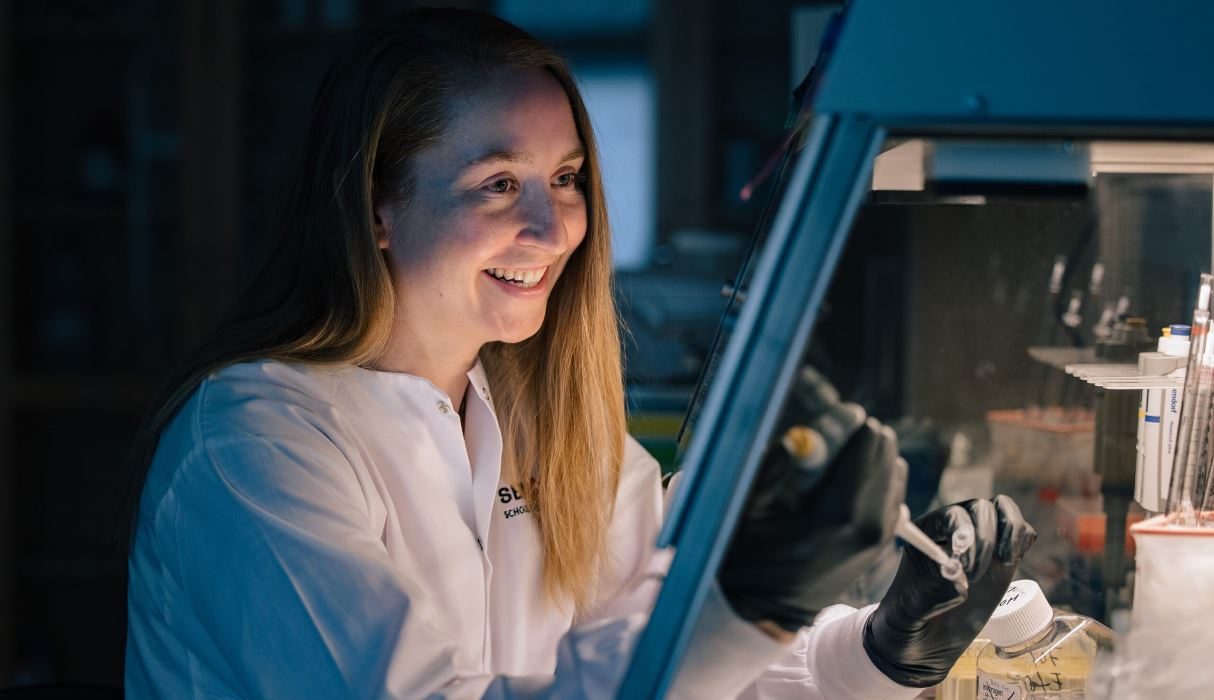
Dr. Anna Blakney, an assistant professor in UBC’s School of Biomedical Engineering, has been recognized as one of Massachusetts Institute of Technology (MIT) Review’s Innovators Under 35 for 2023.
Over 500 people from around the world are nominated for this honour and the top 35 are selected for their work in advancing AI, climate change, biotech, robotics, and computing. Dr. Blakney is a trailblazer with her research in bioengineering, molecular biology and immunology approaches to develop the next generation of RNA vaccines and therapies.
She is also a passionate science communicator and runs a TikTok channel dedicated to educating the public about RNA biotechnology, which now has 250,000 followers and 18 million views. Her innovative nature is inspiring, so we asked her a bit more about how she cultivates innovation in her work.
What do you attribute to your innovative nature?
It is helpful to have that strong engineering foundation. Engineers are taught to think in a specific way about what the challenge is and how to solve it. What also helps me be innovative in my work is having an interdisciplinary lens on my projects. A huge component of my work is actually thinking about immunology. Engineers think in a certain way and an immunologist thinks a certain way and then I blend those two disciplines. I think the interdisciplinary approach is where you can really be innovative.
What inspires you to keep pushing boundaries in your work?
I’m really motivated by the potential of biomedical engineering and RNA technology and thinking about new applications and about how this technology can actually make an impact for patients that still are in need.
What has been your biggest career highlight?
During my postdoc I worked with a team of people on an RNA vaccine that went into a phase one and two clinical trials. I’m motivated and excited about translational research. And so, it’s cool to see your work affecting people and having a positive impact on them.
Another highlight is the science education I’ve had the opportunity to do on TikTok and to be able to get people excited about the work that we’re doing. It’s important to show people how our work affects their daily life, and there are cool ways to explain our research to people who might not have a science background in a palatable way for them.
Do you have advice for students who want to be innovative in their career path?
It is less of a piece of advice and more of a mindset that I adhere to. On my whiteboard I wrote “What would you do if you weren’t afraid?” We’re often self-limiting and can think, “I’m not as smart, or I’m not as qualified,” and you assume that other people have something magic that you don’t have, but it’s not true. So, I try to keep in mind all the time.
What’s next for you?
This recognition is a reminder to think outside the box when I approach my work. There’s new data that comes out every day and so it’s good to just keep on top of what the real challenges in the field are and creative ways to solve them.
A version of this story originally appeared on the School of Biomedical Engineering website.